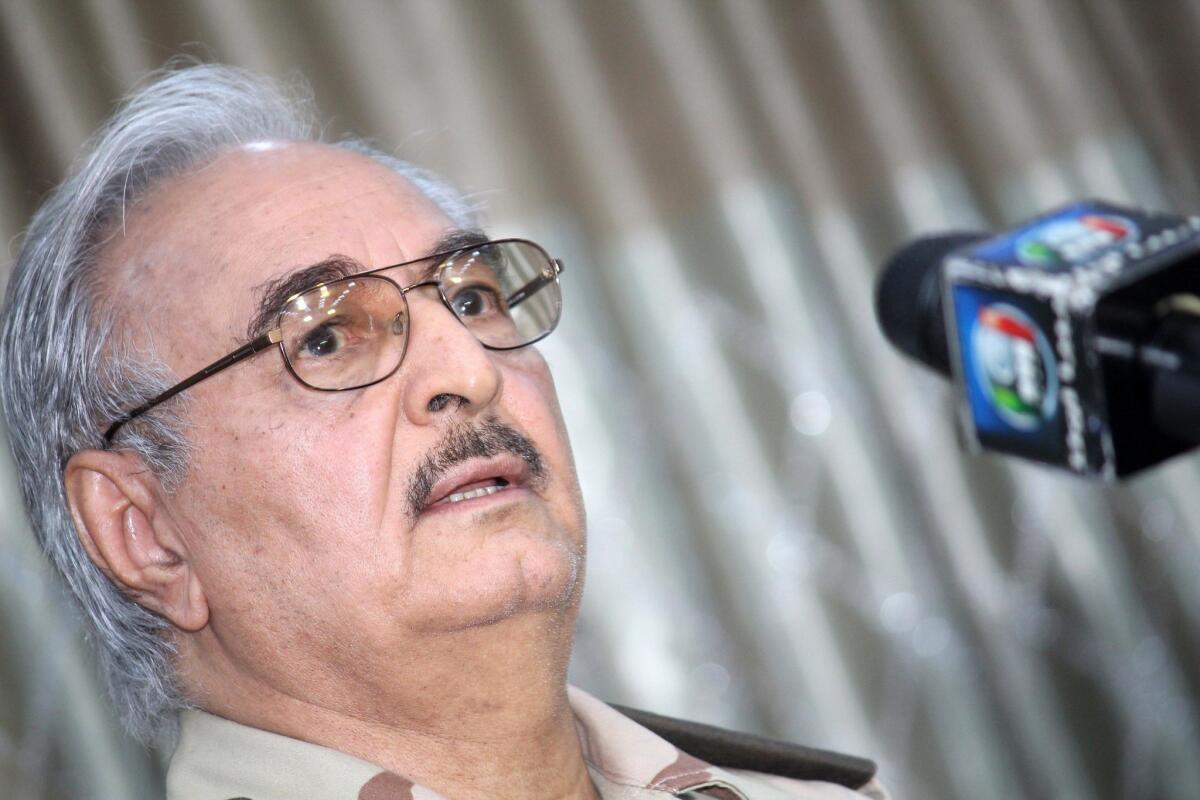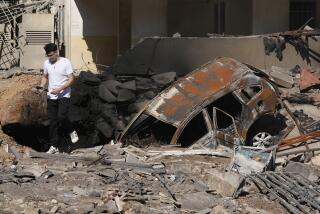Libya names onetime rogue general as army chief of staff

- Share via
Reporting from Cairo — As word emerged Monday of a gruesome new round of Islamic State beheadings, Libya’s internationally recognized government installed a onetime rogue anti-Islamist general as army chief.
Gen. Khalifa Haftar, who has emerged as a divisive figure since beginning a self-styled offensive last year, took the oath of office a week after he was tapped for the top defense post, said a spokesman for the legislature based in the eastern town of Tobruk. A rival parliament sits in Tripoli.
As Haftar has directed his main efforts against Islamist-leaning armed factions based in the western city of Misrata, Islamic State militants have taken advantage of the chaos and established a foothold in several locales.
An offshoot of the group is thought to have carried out an attack last week on an oil field in central Libya in which nine foreign nationals were seized – part of what Libyan officials have described as a bid to take control of Libya’s once-lucrative energy industry.
On Monday, a government spokesman said that during the attack on the Ghani oil field, eight Libyan guards were killed. The Associated Press quoted military spokesman Ahmed Mesmari as saying they were beheaded in front of a colleague, who then suffered a heart attack.
Attacks on oil installations, some of them carried out by the Islamic State, have led to nearly a dozen oil fields being idled, leaving the government unable to meet contractual commitments for those facilities’ output.
In the attack Friday outside the city of Zalla, the abducted foreigners have been identified as being from the Philippines, Austria, the Czech Republic, Ghana and Bangladesh. They were working for an Austrian company.
Islamic State, while dwarfed by other militia groups and blocs, has staged several high-profile strikes since the start of the year. An Islamic State affiliate claimed responsibility for a deadly attack on a luxury hotel in the capital, Tripoli, in January, and fighters loyal to the group have also claimed responsibility for several suicide bombings that caused large numbers of casualties.
Last month, in one of the group’s trademark grisly video productions, Islamic State militants beheaded 21 men, all but one of them Egyptian Christians, on a Mediterranean beach in Libya. That prompted retaliatory airstrikes against the militants by Egypt and the air force of the internationally recognized Libyan government.
Haftar, the new military chief, had also served as defense minister under dictator Moammar Kadafi. But he broke with Kadafi and played a role in the uprising four years ago, in which the strongman was toppled and subsequently killed.
Times staff writer King reported from Cairo and special correspondent Hassan from Berlin.
Follow @laurakingLAT on Twitter for news out of the Middle East and North Africa
More to Read
Sign up for Essential California
The most important California stories and recommendations in your inbox every morning.
You may occasionally receive promotional content from the Los Angeles Times.










